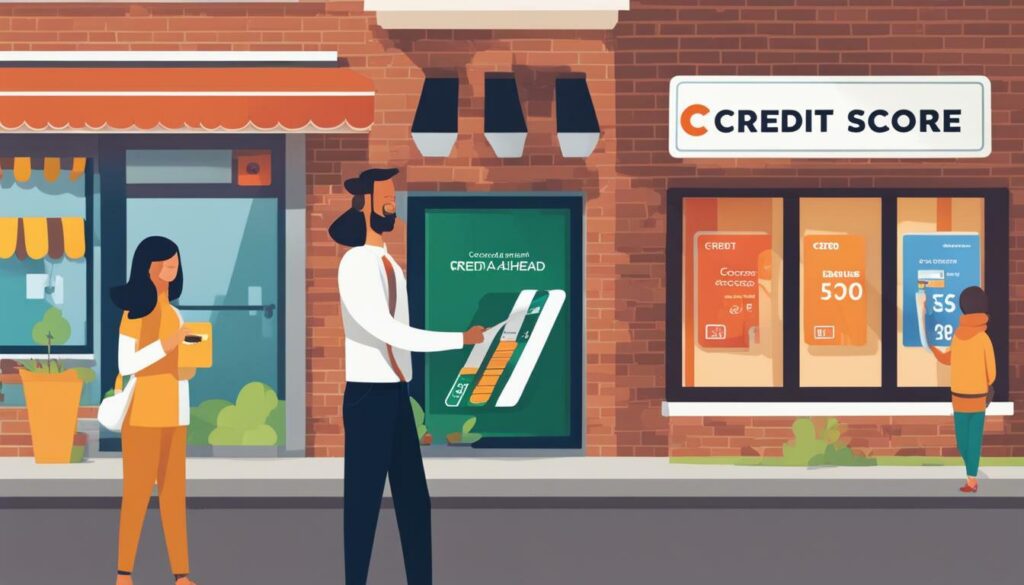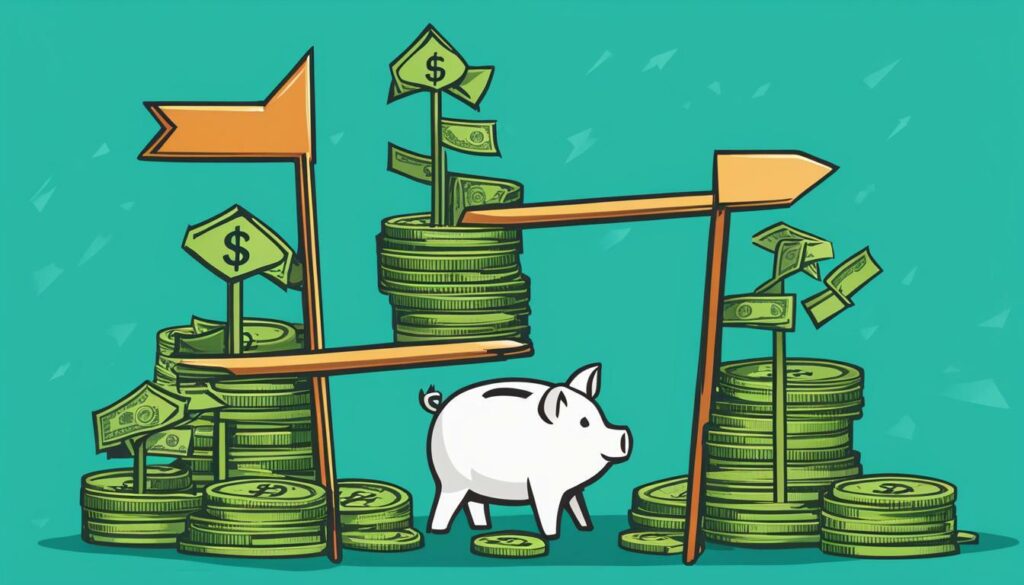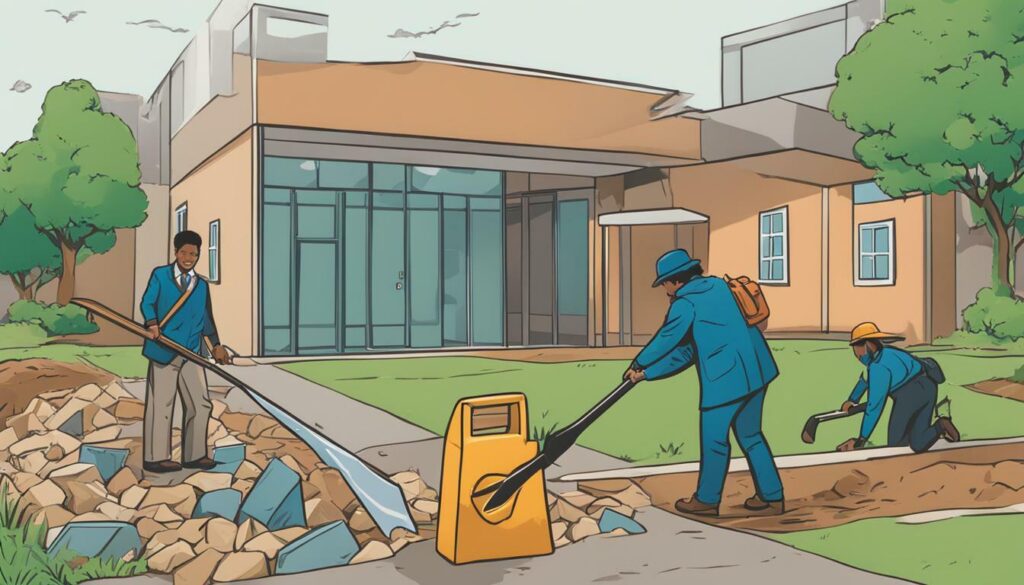Master the Art of Building Credit from Scratch Today

Building credit from scratch can seem daunting, but with the right strategies and a solid understanding of the credit-building process, you can pave the way for a brighter financial future. By taking proactive steps to establish a strong credit history, you’ll gain access to better loan terms, lower interest rates, and increased financial opportunities.
One effective strategy for building credit from scratch is to apply for a secured credit card. With a secured card, you make an upfront deposit that becomes your credit limit. By using the card responsibly and making timely payments, you can demonstrate your creditworthiness and gradually build a positive credit history.
Another option is to become an authorized user on someone else’s credit card. This can be beneficial if the primary cardholder has a good payment history. As an authorized user, their positive credit behavior will be reflected on your credit report, helping you establish your own credit history.
In addition to these methods, you can consider taking out a credit-builder loan or a student loan. Both of these options allow you to build credit while financing education or major expenses. By making regular, on-time payments, you can showcase your financial responsibility and improve your credit score.
Furthermore, incorporating alternative data into your credit profile can provide a significant boost to your credit score. This includes adding information such as rent, utility, or cellphone payments, which can be reported to the credit bureaus. By diversifying your credit profile, you can demonstrate your ability to manage various types of financial obligations.
🚨 TUIC Errors + Low Credit Score?
CreditScoreIQ helps you build credit faster by reporting utility bills to all 3 bureaus—while you dispute errors.
Start Building Credit Today →It’s important to remember that responsible credit use is crucial in building credit. Make sure to keep your credit utilization low, only borrow what you can afford to repay, and always make payments on time. These habits will help you establish a strong credit history over time.
Key Takeaways:
- Apply for a secured credit card to build credit from scratch.
- Become an authorized user on someone else’s credit card with a good payment history.
- Consider credit-builder loans or student loans to build credit while financing education or major expenses.
- Incorporate alternative data, such as rent or utility payments, into your credit profile.
- Prioritize responsible credit use and timely payments to establish a strong credit history.
Understanding the Basics of Building Credit
Before diving into the specific strategies, it’s crucial to grasp the basics of building credit and why it matters for your financial well-being. Building credit from scratch can be challenging, but with the right knowledge and tools, you can establish a strong credit history.
One option to consider is applying for a secured credit card. With a secured credit card, you make an upfront deposit that becomes your credit limit. This allows you to start building credit responsibly by making small purchases and consistently paying off your balance in full and on time.
If you don’t qualify for a secured credit card or want to explore other avenues, becoming an authorized user on someone else’s credit card can be an alternative option. By doing this, you can benefit from their good payment history and show responsible credit use, which can help build your own credit. However, it’s important to choose someone who has a strong payment history and practices responsible credit habits.

Another method to consider is taking out a credit-builder loan or a student loan. These types of loans not only provide funding for education or major expenses but also help you build credit. By making timely payments, you demonstrate your ability to manage debt responsibly, which can positively impact your credit history.
Additionally, you can add alternative data to your credit profile. This includes your rent, utility, or cellphone payments, which can be reported to the credit bureaus. By incorporating this information into your credit history, you can showcase your responsible payment behavior and boost your credit score.
Remember, building credit requires responsible use of credit and making payments on time. It’s essential to develop good credit habits, such as keeping your credit utilization low, avoiding excessive debt, and monitoring your credit report regularly. By following these strategies and practicing responsible credit management, you can build a strong credit history over time, opening doors to better financial opportunities.
Secured Credit Cards: A Path to Building Credit
If you’re starting from scratch with no credit history, one effective way to begin building credit is by applying for a secured credit card. With a secured credit card, you make an upfront deposit that becomes your credit limit. This deposit acts as collateral and minimizes the risk for the credit card issuer, making it easier for individuals with no credit or a limited credit history to get approved.
Secured credit cards work similarly to traditional credit cards, allowing you to make purchases and build credit. As you use the card responsibly and make timely payments, the credit card issuer reports your activity to the credit bureaus, helping you establish a positive credit history.
It’s important to choose a secured credit card that reports to all three major credit bureaus (Equifax, Experian, and TransUnion) to ensure that your credit-building progress is reflected across all your credit reports. Look for a secured credit card that offers the option to transition to an unsecured credit card after a period of responsible use, as this can provide an opportunity to further improve your credit standing.
Tips for Using a Secured Credit Card to Build Credit:
- Make timely payments: Pay your credit card bill in full and on time each month to demonstrate responsible credit use.
- Keep your credit utilization low: Aim to keep your credit utilization ratio below 30%, which means using only a portion of your available credit.
- Monitor your credit activity: Regularly review your credit card statements and credit reports to ensure accuracy and identify any suspicious activity.
By using a secured credit card wisely and following these tips, you can gradually build a positive credit history and improve your credit score. Over time, this can open doors to better credit opportunities, such as qualifying for unsecured credit cards, loans, and favorable interest rates.

| Pros of Secured Credit Cards | Cons of Secured Credit Cards |
|---|---|
| Easy approval process for individuals with no credit history or low credit scores. | Requires an upfront deposit as collateral. |
| Opportunity to establish and build a positive credit history. | May have higher interest rates and fees compared to unsecured credit cards. |
| Reports credit activity to the major credit bureaus, helping you improve your credit score. | Credit limit is typically lower than traditional credit cards. |
Becoming an Authorized User for Credit Building
Another method to establish credit from scratch is by becoming an authorized user on someone else’s credit card, leveraging their positive credit history to boost your own. This strategy can be especially beneficial if the primary cardholder has a long-established credit history with on-time payments. When you become an authorized user, the credit card account and payment history will appear on your credit report, helping you build a positive credit history.
| Pros | Cons |
|---|---|
| You can benefit from an established credit history, even if you have none. | Your credit score may be negatively affected if the primary cardholder misses payments or carries high balances. |
| You do not need to qualify for the credit card on your own. | You have limited control over the account’s usage and payment habits. |
| Authorized user status can be removed at any time by the primary cardholder. | The primary cardholder’s financial irresponsibility could harm your credit score. |
Before becoming an authorized user, it is essential to carefully choose the right primary cardholder. Look for someone who has a history of responsible credit usage, low credit utilization, and on-time payments. You should also establish clear communication with the primary cardholder to ensure that both parties understand the responsibilities and expectations associated with the arrangement.
Expert Tip:
When becoming an authorized user, request that the primary cardholder contact the credit card issuer to ensure the account’s positive payment history is reported on your credit report. This will maximize the credit-building potential of this strategy.
Remember, while becoming an authorized user can help you build credit, it is crucial to maintain good credit habits of your own. This includes making payments on time, keeping your credit utilization low, and avoiding excessive debt. By combining the benefits of becoming an authorized user with responsible credit behavior, you can establish a solid credit foundation and pave the way for future financial opportunities.

Disclaimer: The image above is for illustration purposes only and does not represent specific credit-building strategies.
Credit-Builder Loans: Building Credit and Financing Education
If you’re looking for a way to build credit and fund your education or major expenses simultaneously, a credit-builder loan can be a valuable tool. These loans are specifically designed to help individuals establish or improve their credit history while providing the funds needed to finance important life goals. Here’s how they work:
- With a credit-builder loan, the lender holds the loan amount in a secure account, typically a certificate of deposit (CD), while you make monthly payments towards the loan.
- Each payment you make is reported to the credit bureaus, helping to build a positive payment history and improve your credit score over time.
- Once you’ve made all the payments, the funds held in the secure account are released to you, providing both a boost to your credit profile and the ability to use the funds for your desired purpose, whether it’s paying for tuition, purchasing a car, or covering other major expenses.
Credit-builder loans are especially beneficial for those with little to no credit history or a low credit score. They offer an opportunity to demonstrate responsible financial behavior and establish a positive credit history, which can open doors to better loan terms, lower interest rates, and increased financial opportunities in the future.

Benefits of Credit-Builder Loans:
- Builds credit: By making timely payments on your credit-builder loan, you can demonstrate your ability to manage debt responsibly, boosting your credit score over time.
- Establishes credit history: If you’re new to credit, a credit-builder loan can help you kick-start your credit history, making it easier to qualify for other types of credit in the future.
- Access to funds: Upon successful completion of the loan term, the funds held in the secure account are released to you, providing you with the financial flexibility you need to achieve your goals.
- Lower interest rates: As your credit score improves with the help of a credit-builder loan, you may become eligible for better loan terms and lower interest rates in the future.
Remember, in order for a credit-builder loan to have a positive impact on your credit, it’s essential to make all payments on time. By doing so, you’ll not only build a strong credit history, but also develop good financial habits that will serve you well throughout your life.
Incorporating Alternative Data into Your Credit Profile
Beyond traditional credit sources, incorporating alternative data into your credit profile can significantly boost your credit score and improve your creditworthiness. By adding rent, utility, or cellphone payments to your credit history, you provide lenders with a more comprehensive view of your financial responsibility. This can help you establish a positive credit history, especially if you are new to credit or have a limited credit history.
One key advantage of incorporating alternative data is that it allows you to demonstrate your ability to make timely payments outside of traditional credit accounts. For example, if you consistently pay your rent on time, adding this payment history to your credit profile can showcase your reliability to potential lenders. Similarly, making timely payments for utilities or cellphone bills can further strengthen your creditworthiness.
When incorporating alternative data into your credit profile, it’s essential to ensure that your payments are reported to the credit bureaus. Some landlords or utility companies may not report this information automatically, so it’s important to inquire about their reporting practices. If they do not report, you may need to explore credit-building services that can help you report your alternative data.
| Benefits of Incorporating Alternative Data | Considerations |
|---|---|
|
|
By incorporating alternative data into your credit profile, you can expand your credit history beyond traditional credit sources and demonstrate your financial responsibility. However, it’s important to remember that while alternative data can boost your credit score, it is just one aspect of building credit. Responsible credit use, such as making payments on time and keeping credit utilization low, remains crucial for a strong credit profile.

Incorporating alternative data into your credit profile can be a valuable strategy for building credit and improving your creditworthiness. By adding rent, utility, or cellphone payments to your credit history, you can showcase your financial responsibility and increase your credit score. However, it’s important to ensure that your payments are reported to the credit bureaus and to practice responsible credit habits to maintain a strong credit profile.
| Key Takeaways |
|---|
|
Responsible Use of Credit for Building Credit
Building credit from scratch requires disciplined and responsible credit management, ensuring that you stay on track towards a healthy credit profile. To maximize your credit-building efforts, here are some essential tips to keep in mind:
- Make timely payments: Paying your bills on time is crucial for building credit. Late payments can have a negative impact on your credit score and make it harder to qualify for future credit.
- Avoid excessive borrowing: While having credit is important for building a credit history, it’s equally crucial to avoid overextending yourself. Borrow only what you need and keep your credit utilization ratio low.
- Maintain a diverse credit mix: Having a mix of credit accounts, such as credit cards, loans, and a mortgage, can demonstrate your ability to handle different types of credit responsibly.
- Keep your credit accounts active: Regularly using your credit accounts and making timely payments shows lenders that you can manage credit responsibly.
- Monitor your credit regularly: Stay vigilant by checking your credit reports regularly for errors or signs of identity theft. Address any discrepancies promptly to protect your creditworthiness.
By incorporating these credit-building tips into your financial habits, you can establish a strong credit history and open doors to better borrowing opportunities in the future.

Building Credit Through Responsible Use
Responsible use of credit plays a vital role in building your credit from scratch. It involves managing your credit accounts wisely, making timely payments, and keeping your credit utilization low. By following these practices consistently, you can build a solid credit foundation and improve your creditworthiness over time.
Remember, building credit takes time and patience. Stay focused on your financial goals and continue practicing responsible credit management. With dedication and discipline, you can achieve a healthy credit profile that opens up opportunities for a brighter financial future.
Conclusion
Building credit from scratch may take time and effort, but by following the strategies outlined in this article and adopting good credit habits, you can establish a solid credit foundation for a brighter financial future.
Firstly, consider applying for a secured credit card. With a secured credit card, you make an upfront deposit that becomes your credit limit. By making regular, on-time payments and keeping your credit utilization low, you can gradually build a positive credit history.
Another option is to become an authorized user on someone else’s credit card. This can be beneficial if the primary cardholder has a good payment history. By being associated with their credit card, you can build credit as their positive payment behavior is reported on your credit report.
If you are in need of financing education or major expenses, consider taking out a credit-builder loan or a student loan. These types of loans not only provide financial support but also help you build credit as you make regular payments.
Additionally, you can add alternative data to your credit profile. This includes reporting rent, utility, or cellphone payments to the credit bureaus. Including this data can enhance your credit profile and boost your credit score.
Remember, responsible use of credit is key. Make sure to pay your bills on time, keep your credit utilization low, and avoid taking on more credit than you can handle. By practicing these good credit habits, you can steadily build a strong credit history over time.
Building credit from scratch may not happen overnight, but with patience and perseverance, you can achieve your financial goals. Start implementing these strategies today and take control of your credit future.
FAQ
What are some strategies for building credit from scratch?
Some strategies for building credit from scratch include applying for a secured credit card, becoming an authorized user on someone else’s credit card, taking out a credit-builder loan or a student loan, and adding alternative data to your credit profile.
How can secured credit cards help in building credit?
Secured credit cards can help in building credit by requiring an upfront deposit that becomes your credit limit. Responsible use of a secured credit card and making timely payments can demonstrate your creditworthiness and help establish a positive credit history.
How does becoming an authorized user on someone else’s credit card help build credit?
Becoming an authorized user on someone else’s credit card can help build credit if the primary cardholder has a good payment history. The positive credit activity on the card can be reflected on your credit report and contribute to the development of your own credit history.
What is a credit-builder loan and how does it help in building credit?
A credit-builder loan is a type of loan designed specifically to help individuals build credit. By making regular payments on the loan, you can demonstrate your ability to responsibly manage credit, leading to an improvement in your credit score.
How can alternative data be added to a credit profile and benefit credit building?
Alternative data, such as rent, utility, or cellphone payments, can be added to your credit profile through reporting services. Including this information can provide additional evidence of your creditworthiness and potentially boost your credit score.
What is the importance of responsible credit use in building credit?
Responsible use of credit, including making payments on time and staying within your credit limits, is crucial in building and maintaining a strong credit history. Consistently demonstrating good credit habits can lead to improved credit scores and access to better credit opportunities in the future.
Ready to Improve Your Credit?
Disputing TUIC errors is step one. Step two? Boost your score by reporting utility payments with CreditScoreIQ.
Get Started Now (Only $1 Trial) →3-bureau reporting • $1M identity insurance • Dark web monitoring


